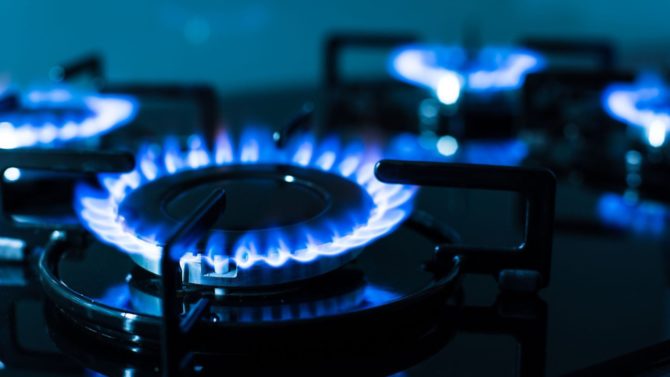How to set up your gas supply in France

All you need to know about the different gas suppliers and tariffs in France and how to set up the gas supply in your new French property
Gas suppliers in France
In France the national gas supplier GRDF (formerly GDF Suez and now part of the Engie group) owns and runs the natural gas distribution network. GRDF is responsible for connecting households to the gas network and installing any equipment but the market is open to other suppliers. Engie is the only supplier who offers gas at the state-regulated tariff but there are other suppliers to choose from:
Engie/GDF Suez – the national gas supplier which has won over a number of its existing gas customers to a total energy package.
EDF – the national electricity supplier and still the largest supplier of electricity in France that also offers natural gas supply.
Direct Énergie – the largest alternative energy supplier in France and offers both gas and electricity at attractive rates.
Eni – the largest alternative natural gas supplier in Europe and one of the largest in France. In 2017 they launched electricity offers as well.
ekWateur – a green energy company that entered the market in 2016 offering biogas and green electricity.
Lampiris – another green energy company that offers natural gas and electricity from 100% renewable sources at a one-year fixed rate guaranteed to be below the regulated rate.
Alterna – created by grouping together several local distribution system operators to offer both gas and electricity.
Antargaz – one of the major propane suppliers in France but also offers natural gas for customers who have gas heating and consume at least 6,000 kWh per year.
Proxelia – similar to Alterna but based only in the north of France and offering electricity and natural gas packages.
Gaz de Bordeaux – the historical supplier of natural gas in Bordeaux but in 2017 expanded to offer supplies to customers across France.
Dyneff – a small gas supplier in Montpellier that expanded across France in 2016.
Energies du Santerre – a small provider of electricity and gas that specialises in fixed prices.
_________________________________________________________________
Don’t miss
How to set up your electricity in France
Guide to setting up your utilities in France
_________________________________________________________________
If your property isn’t connected to the mains gas supply…
Not all properties are connected to the mains gas. If your house is located only slightly outside the network, you could get an estimate for an extension (raccordement) to link to the mains.
Otherwise, you could install a gas tank (citerne) on your own property for larger consumption needs, which involves a contract, as the supplier installs the equipment as well as providing regular gas refills.
Or you can buy bottled gas, readily available in most supermarkets and petrol stations in 6kg, 13kg and 35kg cylinders. There are two types of bottled gas available: butane gas, which needs to be stored indoors, and propane gas suitable for outside storage. You pay a small deposit fee for the cylinder bottle originally, thereafter swapping it for a full one as you need. The cost for the most widely used 13kg gas cylinder is currently around €30. Four 13kg cylinders are normally sufficient for cooking purposes for a year in an average household.
_________________________________________________________________
Don’t miss
20 French words you need to set up utilities in France
How to set up your broadband in France
_________________________________________________________________
Gas tariffs available in France
Your natural gas bill will contain two types of charges:
The fixed subscription charge (prix de l’abonnement): this is a fixed charge that varies depending on the supplier, your consumption, the rate option and the plan you choose.
Consumption charge (prix par kWh): this is the price you may for the amount of gas you consume and is measured in kWh.
Tarif réglementé – (state-regulated tariff) this is set by the government and change every month. Engie is the only supplier who can offer the regulated tariff. Many companies offer an index-linked tariff which is linked to the regulated tariff.
There are different types of supply and you choose the one that applies to you:
Base: for cooking only
B0: for cooking and hot water
B1: for heating in a small house
B2I: for heating in a larger house
Many companies offer both gas and electricity and it can be simpler and cheaper to opt for a joint plan. When it comes to choosing your gas supplier, the best place to start is a comparison website such as www.energie-info.fr (French) or en.selectra.info (English). You provide basic information – location, gas usage and requirements – and the sites put together supplier offers.
_________________________________________________________________
Don’t miss
Things you need to know about banking in France
11 things to do before you move to France
_________________________________________________________________
How to set up an account
If your new property is already connected to the network then simply choose your gas supplier and contact them to open an account (ideally about two weeks before you move in).
In order to open an account you will need:
• Your contact information: name, e-mail address, phone number
• Proof of identity
• The address of your new home, including the floor and apartment number if it is a flat and proof of residence
• The name of your new home’s previous occupant
• Your French bank account number (your RIB)
If the gas service to your property has been deactivated (which might happen if the property is vacant for a long time) then your supplier will need to get GDRF to reconnect the supply which could take up to 5 working days.
How to close an account
Don’t worry too much if you choose the wrong provider and discover you could have a better deal elsewhere, as you can change from one provider to another, without penalty, at any time.
If you are moving out of your property then simply notify your gas supplier in advance. Provide a final meter reading when you move out to get a final bill. You should be able to cancel your plan over the phone or online but if you are sending a cancellation letter then make sure you include your full name and signature, your account number and final meter reading and the date you wish to cancel on.
Like this? You might enjoy:
5 things you need to know before buying a French property
Share to: Facebook Twitter LinkedIn Email


